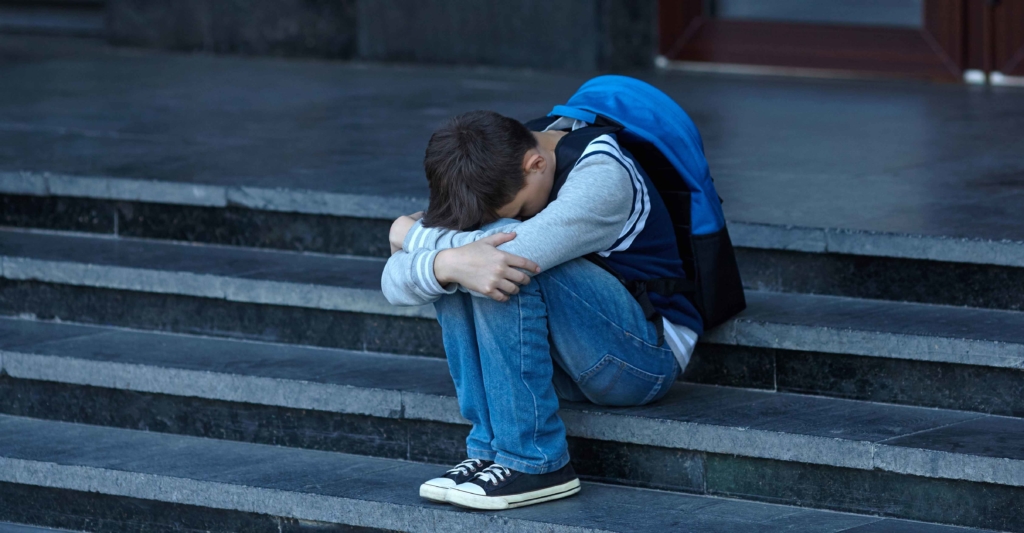*Editor’s note: The boy’s real name was not used to protect his privacy.
June 28, 2018, was a Tuesday. It’s a day I will never forget.
A couple of weeks earlier, I was irritated because my work schedule was messed up by the administrator, and I was not scheduled to teach as requested. Looking back, it was for a reason.
In my household our mantra is, “Everything happens for a reason.”
I saw my son’s pill box sitting on the counter. This was nothing unusual since *Mason takes medication every night, and it commonly sat out on the kitchen counter.
For some reason, that day was different. I thought to myself, “I’ll move his missed dose to Sunday so that we don’t get too confused as to whether he took his medication or not.”
Then, I picked the pill box up, popped open Tuesday and it was empty. So I started to panic.
I flipped open all the days and the pill box was empty. I took off upstairs to his room. One of the medications Mason was on at the time was clonidine, a cardiac drug that is very dangerous.
I entered his room and found him sleeping. After I yelled his name and I got no response. So, I aggressively shook him and asked, “Mason, did you take all of your medication for the week?”
At first, he denied it, but then he mumbled, “I’m sorry.” I dragged him out of bed and into the car to get him to the pediatric emergency room nearby.
 It wasn’t until a month later that I realized his mom and I missed a warning sign that started months before. He suddenly quit playing football — a sport he absolutely loved — halfway through the spring season.
It wasn’t until a month later that I realized his mom and I missed a warning sign that started months before. He suddenly quit playing football — a sport he absolutely loved — halfway through the spring season.
Teen depression is a mental and emotional disorder that effects 15% of children, according to the journal American Family Physician.
It manifests differently than the adult version because of the social and developmental challenges teens face, including peer pressure, sports, constantly changing hormone levels and bodily changes.
As common as this psychiatric issue is, why do we only spend time educating students on the adult version?
Causes of teen depression
The causes of this adolescent health issue include the following:
- Teenage brains are structurally different. They are going through hormonal changes that seem never-ending. This has a significant impact on the regulation of teens’ moods.
- Traumatic events like losing a family member or close friend. Children have poor coping mechanisms.
- Depression can run in the family. When multiple family members have a history of depression, it is likely the child also will develop depression.
- Negative thinking can cause a teenager to develop depression. When the child’s parents are pessimists, their children develop a poor outlook on life and can develop teen depression rather than overcoming the challenge.
In our case, negative thinking came from one of his friends who attempted to commit suicide months earlier, which was unbeknownst to us at the time.
I also believe the structural differences of his brain played a part, as well as Mason’s developmental challenges.
Signs of teen depression
This is not an all-inclusive list, but some of the signs of teen depression include:
- Regularly sad or irritable
- Sudden weight and appetite changes
- No longer interested in favorite activities
- A decrease in energy
- Trouble concentrating
- Feelings of guilt or worthlessness
- Serious changes in sleeping habits, including sleeping too much or too little
- Constantly complaining of boredom
- Talk of suicide
- Withdrawing from friends
- Poor grades
Some of these signs are commonly seen as simply part of being a teenager. For example, eating changes can be completely normal, especially if the child is playing sports or going through a growth spurt.
Sleeping changes also are completely normal. When a child enters puberty, circadian sleeping rhythm moves back by two hours, so they go to bed later and sleep longer.
Poor grades also are very common within this age group because they are moving to new schools, losing friends to different social groups and navigating middle school and high school.
As parents, you have to look at the big picture.
What did we miss?
- Quitting football was one clue.
- The other, which hit me well after the event, was boredom. Mason was constantly telling us, “I’m bored.”
I did not recognize this sign until I was teaching a lecture. I actually had to take a minute to regroup after reading that sentence to the class.
It was the one sign that was in our face the entire time, and we did not catch it.
Diagnosing teen depression
The criteria for diagnosing teen depression can be found in the American Psychiatric Association’s Diagnostic and Statistical Manual of Mental Disorders, 5th Ed.
The patient must have two or more major depressive episodes for at least two weeks and must also have a minimum of five of the following 10 criteria:
- Agitation noticed by others
- Depressed mood for majority of the day
- Diminished ability to think or concentrate
- Loss of interest in most activities
- Fatigue
- Excessive guilt
- Feelings of worthlessness
- Insomnia or excessive sleeping
- Regular thoughts of death
- Significant, unintentional increases or decreases in weight
My wife and I were lucky. Mason survived the suicide attempt.
Had I been teaching that morning, he would not have been found for at least four more hours.
How would that have ended? It’s scary to even think about.
He spent two days in the hospital and another four in a mental health facility before he was able to come home.
In his case, Mason came home earlier than expected for a few reasons:
- He was remorseful.
- We had been proactive. Before the event occurred, most of his medication was locked away in a safe. This is something most parents do not think to do. The only reason Mason had access to the pill box was because we were attempting to teach him personal responsibility. We won’t always be around to remind him to take his medication.
- We are involved parents. Sadly, we were the only parents that were ever in the waiting area during visiting hours during his stay. It was disheartening to know there were dozens of kids in the treatment area and no one was coming to see them.
